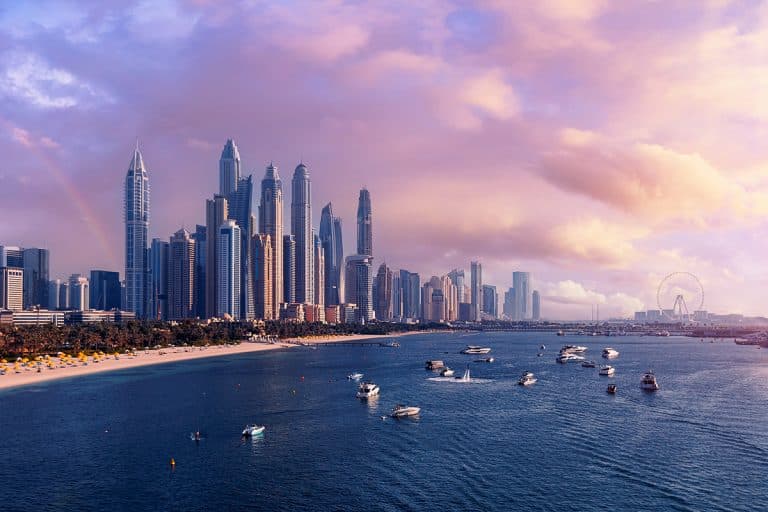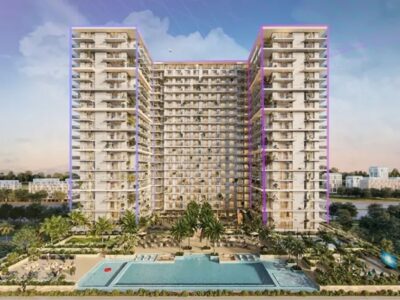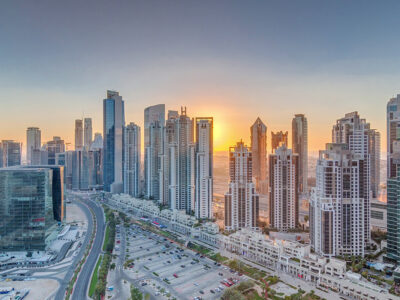In 2024, we have all encountered thousands of news pieces on the incredible growth of Dubai, with record-breaking transactions and an extremely high influx of foreign investment. The market is poised for even more growth in the near future, competing with established global property hubs including London, New York, Singapore, Shanghai and more. As an establishment that has always championed the potential of Dubai and pushed for more disruptions to help more of the world aware of the unbelievable opportunity offered by Dubai, all of us at Bayut and dubizzle are incredibly proud of what this city has accomplished. But it certainly did not happen overnight.
When I assumed the position of CEO at Bayut in 2014, Dubai’s real estate sector was far from the dynamic, innovation-driven ecosystem we witness today. The process of connecting buyers, sellers, and renters was disjointed, hampered by outdated practices that rendered transactions slow and inefficient. It was all too common for individuals to struggle in finding the right properties, often getting lost in a labyrinth of information.
Fast forward to today, the transformation is nothing short of remarkable. Technology has revolutionised how we buy, sell, and rent properties, making the process faster, more transparent, and user-friendly. At Bayut and dubizzle, we have not just witnessed this growth but we have also been at the forefront of this transformation, providing seamless experiences driven by real-time data and intuitive tools that empower users. The numbers speak volumes: in the first nine months of this year alone, Dubai witnessed over 163,000 property transactions worth more than AED 544 billion, with investments exceeding AED 376 billion. In the same period, Bayut and dubizzle had close to 6 million monthly visits on average in Dubai.
Real estate is not merely a sector in Dubai; it’s a cornerstone of the emirate’s economic success. Dubai consistently outshines global investment hubs like London and New York, offering gross investment yields of up to 7 per cent, significantly higher than New York’s 4.2 per cent and London’s modest 2.4 per cent. These impressive returns are bolstered by the city’s visionary leadership, robust infrastructure, exceptional amenities, and investor-friendly policies, including long-term residency visas.
Dubai’s strategic position as a gateway between East and West, combined with its tax-friendly environment, has always attracted international investors. With the recent global economic climate changing considerably, more and more high-net-worth individuals (HNWIs) are seeking properties in Dubai to invest in to diversify their portfolios and choose a location that has endured the stress of a global pandemic and emerged successfully.
By the end of 2024, around 6,700 millionaires are expected to relocate to the UAE, further cementing the city’s reputation as the top global destination for affluent investors.

At Bayut, we’ve observed unprecedented activity in the luxury segment, with over 5,820 luxury transactions worth over AED 163.2 billion in the sale segment as of December 10, 2024. Dubai’s status as a luxury hub ensures this segment remains vibrant, with developers anticipated to unveil even more exclusive offerings in 2025 to meet growing demand.
At the same time, flexible payment plans and enhanced digital accessibility are attracting younger, tech-savvy buyers, reshaping the demographics of Dubai’s real estate market. Millennials and Gen Z professionals are now key players, drawn by the city’s lifestyle, infrastructure, and strong returns on investment.
Off-plan investments are also on the rise, as developers show confidence in the sector’s future with innovative designs and flexible payment options. These projects not only reflect market optimism but also present compelling opportunities for buyers to invest in some of Dubai’s most exciting new developments. Bayut’s data on 105,784 off-plan transactions in 2024 so far demonstrates the growing appeal of these opportunities, which will likely remain a cornerstone of Dubai’s real estate landscape in 2025. Bayut had over 7 million detail page views for off-plan transactions in Dubai (+75 per cent from 2023).
Adding to the city’s allure are landmark projects like Dubai Creek Harbour and Dubai South, which exemplify the city’s vision of holistic communities. These developments seamlessly integrate residential, commercial, and recreational spaces, fostering environments where people can live, work, and thrive. Looking ahead, future phases of these projects are expected to set even higher standards in sustainable design and smart-city integration, further elevating Dubai’s appeal to global investors and residents alike.
The emirate’s reputation as a safe, business-friendly, and tax-efficient destination continues to sustain investor confidence. According to figures released by the Dubai Land Department, the real estate sector attracted approximately 50,000 new investors in the first half of this year, with the total value of real estate transactions reaching AED 346 billion—a 23 per cent year-on-year growth from the previous year—and around 100,520 transactions carried out.

What the future holds
Building on these successes, Dubai’s real estate outlook for 2025 is poised to be shaped by continued innovation in property development, the launch of additional community-focused projects, and enhanced digital solutions. With a growing investor base, a strong pipeline of visionary projects, and policies that support long-term growth, Dubai is set to retain its position as one of the world’s most sought-after investment destinations in 2025.
As Dubai continues to evolve as a global real estate leader, technology—particularly Prop-Tech—is playing a pivotal role in shaping the market’s future. Artificial intelligence (AI) is leading this transformation, enhancing efficiency, accuracy, and user experience in ways that were unimaginable just a few years ago.
For instance, at Bayut we have capitalised on advanced AI to revolutionise property evaluations by providing highly accurate, data-driven insights through TruEstimate, our instant property valuation solution. Gone are the days of relying on outdated valuation methods or subjective judgments. With AI-powered algorithms, real-time market data is analysed on TruEstimate to produce precise property valuations, helping buyers, investors, and sellers make informed decisions based on current trends, comparable properties, and market forecasts.
AI is also transforming property searches by making them faster, more intuitive, and personalised. Users can easily inquire about key details like rental yields, popular locations, or availability, while receiving tailored property recommendations based on their preferences. This conversational approach simplifies the process, offering real-time, relevant information that saves time and enhances the search experience. Looking to 2025, as AI continues to evolve, it will play an even greater role in streamlining property searches, ensuring users access the most up-to-date and accurate data.
Real-time data analytics will also offer deeper insights, empowering both buyers and sellers to make more informed decisions. As digital solutions further streamline transactions, the real estate experience will become increasingly efficient, transparent, and seamless, setting new global standards for the industry.
Reflecting on my decade of experience at Bayut and living in the UAE, I’m constantly inspired by the transformation we’ve witnessed.
Dubai’s real estate market is more than just an industry—it’s a symbol of progress, ambition, and resilience. Embracing change, leveraging innovation, and prioritising user needs will continue to define our path forward. As the city looks ahead to 2025, the synergy between technology and real estate will continue to unlock new opportunities, redefine the industry, set new standards for excellence, and continue to inspire cities around the world.









